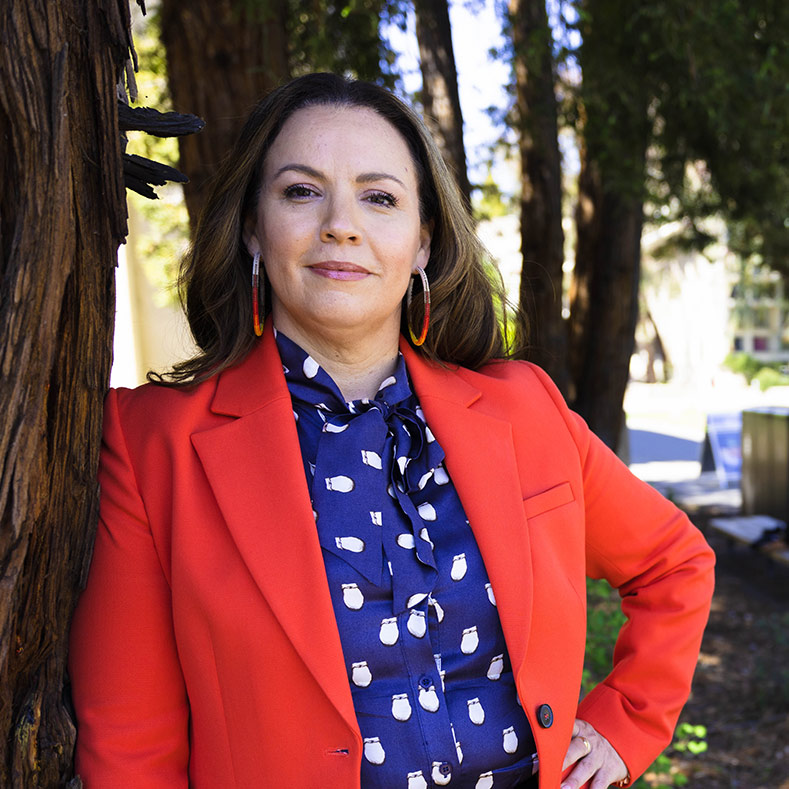By Gwyneth K. Shaw
With an eye on aligning student enthusiasm with some of Berkeley Law’s strongest offerings, the school’s Admissions Office is repackaging some gift aid into a new set of scholarships.
Coming from the existing financial aid budget, these grants were developed in consultation with the school’s faculty, many of whom will mentor and collaborate with recipients. They’ll also leverage its many and varied research centers and institutes, including the Center for Law, Energy, & the Environment, the Berkeley Center for Law and Business, the Berkeley Center for Law & Technology, the Thelton E. Henderson Center for Social Justice, and the Center for the Study of Law and Society, as well as the school’s Ph.D.-granting Jurisprudence & Social Policy (JSP) Program, an interdisciplinary powerhouse.

“We went into this with a recognition about what our admitted students are most interested in and most committed to and what some of Berkeley Law’s incredible strengths are — and where the two could meet in the middle,” Dean of Admissions and Financial Aid Kristin Theis-Alvarez says. “That seemed like a win for everyone.”
The new categories, which will be offered to students admitted for the 2023-2024 academic year, begin at $45,000 per year and can extend up to full law school tuition and fees, estimated at $62,566.50 for California residents and $74,994.50 for out-of-state students. They are:
- Berkeley Law & Society Scholars, aimed at students interested in domestic and international policy. That covers a wide variety of interests, including environmental and climate law, education law, and comparative legal studies.
- Berkeley Builders Fellowship, focusing on students who are passionate about business and corporate law, including corporate sustainability, startup law, and entertainment and sports law.
- Berkeley Scholars in Law, designed for students who are planning to do one of three things: Design, conduct, and publish legal scholarship; seek work in an academic field that uses their legal training; or pursue a Ph.D. at the school or in another field as well as their J.D.
- Berkeley Justice Fellows, intended for students interested in social justice, including the spheres of civil rights, criminal justice, federal Indian or tribal law, reproductive justice, refugee and immigration law, and beyond.
- Berkeley Innovation Scholars, for students planning to study the intersection of law, technology, and society, from patent and intellectual property law to the regulation of emerging technologies.
Room for innovation
The categories are broad by design, Theis-Alvarez says, in order to provide room for what Berkeley Law students do frequently: Stretch the boundaries of traditional thinking, studying, and lawyering. A future Berkeley Innovation Scholar might work with patent law titan Professor Peter S. Menell, she says — or Professor Andrea Roth, who studies the way science is transforming evidence law.
Another example is sports law, Theis-Alvarez says. It fits easily into the business law realm, but also has labor and employment issues wrapped up in it, particularly involving unions. The question of how to financially support college athletes could be answered from a social and racial justice perspective as well.
This kind of flexibility fits with the acutely interdisciplinary nature of the school’s faculty and intellectual offerings, she says. She and her staff understand the appeal, thanks to their constant conversations with prospective and incoming students.
These new scholarships are intended to help students who want to explore new facets.
“We want people here who are approaching things from a different angle,” Theis-Alvarez says. “And we also want a kind of cross-pollination, following the idea that I care about something or think about it differently because we come from different backgrounds or places.
“That’s what we mean when we say intellectual diversity, which is a hallmark of this institution.”
Strengthening bonds
Professor David Hausman is particularly excited about the Berkeley Scholars in Law category, designed to further strengthen the pipeline between the law school and legal researchers, particularly within the highly interdisciplinary JSP. A Ph.D. is increasingly a must-have credential for aspiring law professors.
Hausman was able to complete both his J.D. and Ph.D. in political science at Stanford thanks to a fully-funded program, and is eager to encourage more law students to expand their own goals.
“I love being an academic, so I’m excited that the law school is helping our students down the same path,” he says. “It’s always amazing when something comes up in a case in class, and it turns out a student is a world expert. Now that should happen even more often than before.”
For the time being, there aren’t numerical targets or limits for these new categories, Theis-Alvarez says. The school’s Public Interest Scholars Program, a three-year scholarship covering full tuition and fees for J.D. students dedicated to public interest work that began in 2021, is a model, she adds, as those students have forged a community within the larger school that’s produced broad benefits.
“They, and other students, have generated a lot of ideas that advance the school. We want to encourage them to spur the next wave of innovation, both here and in the legal profession,” she says. “The students are the catalyzers.”